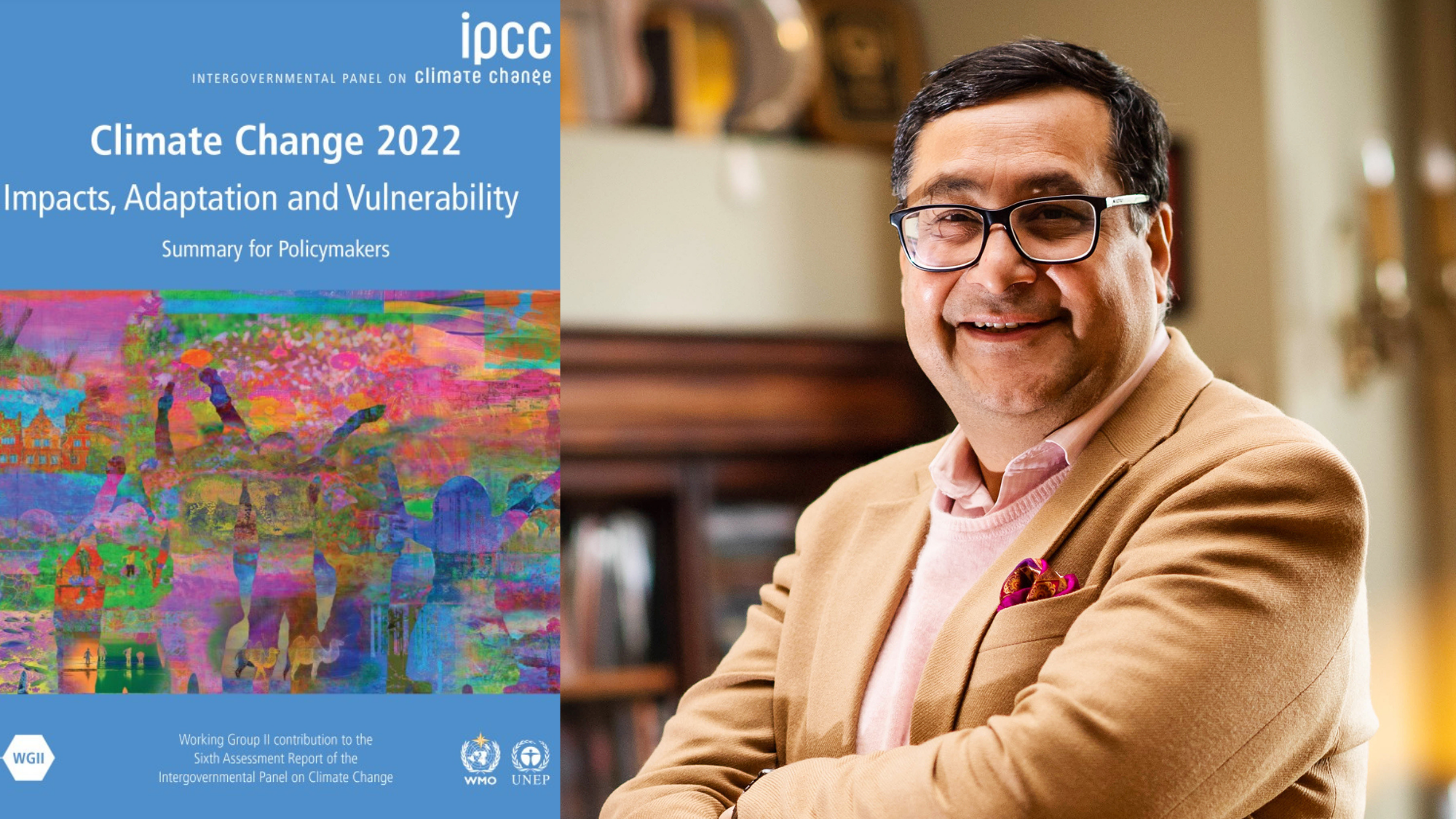Najam Comments on New IPCC Climate Report

Adil Najam, Dean of the Frederick S. Pardee School of Global Studies at Boston University, discusses the Intergovernmental Panel on Climate Change’s (IPCC) sixth assessment report, “Climate Change 2022: Impacts, Adaptation and Vulnerability,” in a new ImpactAlpha article.
The article, titled “From ‘Atlas of human suffering’ to ‘Roadmap for climate resilience,’” outlines the findings of the IPCC’s report, which assesses the impacts of climate change, looking at ecosystems, biodiversity, and human communities at global and regional levels. It also reviews vulnerabilities and the capacities and limits of the natural world and human societies to adapt to climate change. The report echoes Najam’s longstanding argument that the world is in the midst of the “Age of Adaptation,” meaning world governments need to shift the focus of their climate policy strictly from mitigation efforts to adaptation. The report calls on the private sector to provide additional mitigation funding, a focus on climate justice, and much more.
When asked to comment on the IPCC report, Dean Najam said the following:
The reality that the ‘Age of Adaption’ is now upon is fast becoming the standard view… and that is unfortunate. Because it means that we have indeed failed terribly in our mitigation measures. The new IPCC report is only one more piece in a series of evidence that highlights the fact that for a very large number of people climate change is a challenge that is here and now.
The full article can be read on ImpactAlpha‘s website. To read the full IPCC report, visit their website.
Adil Najam is a global public policy expert who also served as the Vice-Chancellor of the Lahore University of Management Sciences, Lahore, Pakistan. He is the Inaugural Dean of the Frederick S. Pardee School of Global Studies at Boston University and was the former Vice-Chancellor of the Lahore University of Management Sciences (LUMS). His research focuses on issues of global public policy, especially those related to global climate change, South Asia, Muslim countries, environment and development, and human development. Read more about Dean Najam on his faculty profile.